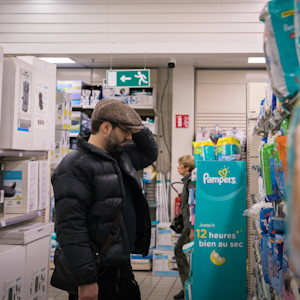There’s no shame in admitting that spreadsheets and email are no longer a reliable means of managing your translation projects. The sooner you acknowledge those limitations, the sooner you can scale a localization strategy that sends your business sprinting past competitors.
Just be careful when picking partners for the next leg of your journey. The translation technology company you select will ultimately dictate the rate and extent of your success, so make sure the chosen candidate has clear and compelling answers to these eight questions:
How Is Your Business Structured?
Try to assemble as detailed a business profile as possible. You need to know whether the partner you’re trusting has the financial strength and organizational vision to support your plans.
Qualified vendors should have no qualms disclosing their current and previous funding sources, so don’t be shy about asking. Beyond monetary matters, you should also identify who occupies key leadership position and where staff are geographically distributed.
What Are Your Areas of Expertise?
In addition to confirming a basic level of qualification and experience, it’s always good to hear how a company views its own value. You want to know that its specialized skills align with the outcomes you value most. And since technology is ever-changing, you should also ask for a forward-looking preview of where the company might focus its innovation efforts.
Who Are Your Customers?
Most translation technology companies will be eager to build up their prestige and break down your skepticism by listing a few household names from their client roster. Social proof is, after all, one of the most powerful factors in any vendor selection process.
But don’t focus too much on the specific brands. More importantly, look for customers with a similar business profile to your own. There’s no substitute for the experience gained serving certain industries and market segments.
What Exact Products & Services Do You Sell?
The offering that initially sparked your interest may not be the only one they offer or you need. Alternatively, you might find that the features underlying a product or service don’t match up with what you initially expected. Either way, educate yourself on the full menu of offerings and try to confirm the most likely use case(s) for your business.
What Differentiates You From Your Competitors?
Translation technology is a competitive industry, and any vendor who claims to be peerless is either deluding themselves or trying to delude you. Each company ultimately knows what its unique value propositions are — however large or limited they may be.
If you start by listing your top priorities, there’s a good chance the vendor will tilt their response in that direction. So it’s usually best to encourage them to list their differentiating factors without any prompting.
What Service Commitments Can I Expect?
Translation technology has significantly simplified the localization process, but it doesn’t mean the software itself is necessarily easy to integrate or operate. Implementation, training, and support are far less attractive talking points than product features, but they couldn’t be more crucial to you success. Delayed launches, lengthy learning curves, and untapped value are all common consequences of a lackluster service framework.
How Do You Address Security Concerns?
No technology procurement process is complete these days without a thorough discussion of security. First and foremost, you need to know the company takes the physical and digital security of its own assets seriously. But more and more, the bigger concern is how to keep your business data private and protected.
Most vendors will have considerable internal documentation to share. But just as importantly, you should look for certification from third-party associations such as standards councils and industry watchdogs.
How Much Will I Pay?
Cost should not be the driving factor in localization strategy decisions, but it does have to be discussed sooner or later. Precision quotes will be difficult to obtain as it’s never quite clear what your strategy is underway. However, you can determine the different cost categories and assess how each is billed. Contract periods, ongoing fees, and discount opportunities tend to vary the most between vendors.
Learn More
See dozens of specific questions that should be asked and answered in our translation software sample RFP.
Download your copy of Smartling's Complete Guide to Translation Services here.








